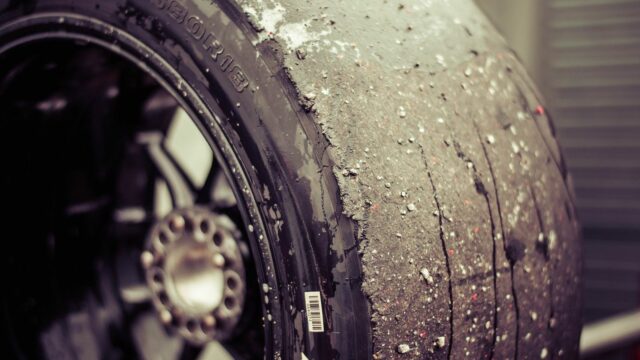Looking out for your tires is primarily about safety, but it also involves performance and cutting costs in the long run.

Tires are the only point of contact your vehicles maintains with the road and for each wheel and guess what: they're about the size of your hand. Extending the life of your tires (therefore cutting costs), improving efficiency (therefore lowering fuel consumption) and better performance are just some of the main benefits you'll see over time. Here's what you need to do:
1. Maintain proper inflation. Really, this is the single most important thing you can do to look after your tires. Underinflation reduces tire load capacity and increases rolling resistance which, furthermore, causes extra heat and mechanical damage. On the other hand, overinflation is responsible for additional stiffness and annoying vibration, so you don't want that either.
2. Check your tires as often as posible. All you need to do is inspect your tires regularly (preferably once a month, but it depends on how often and in what kind of environment your car has to perform) for cracks, bumps and any other type of damage. Also, keep an eye on your vehicle's suspension geometry and wheel alignment, as the slightest deformity can affect the tire's integrity.
3. Don't spin the tires too much. We all love a proper burnout as much as we don't like being stuck in the snow, sand and mud. So let your racing ambitions aside and try using a forward-backward rocking motion to break your car free.
4. Keep the tires clean. So, going off-road is one of your hobbies? Good for you, but once you are done with the fun part, make sure you grant those tires a good wash. Of course, this goes for all drivers who happen to leave asphalt roads once in a while.
5. Rotate tires. And do it often (5,000 miles or 8,000 kilometers is the recommended interval) because this is as important as changing the oil. For example, in front-wheel drive cars, front tires are in charge of braking, steering, and driving the vehicle. Therefore, wear and tear is more noticeable compared to the rear tires, which are only affected by braking forces.
6. Use proper tires for every season. Using summer tires in winter and viceversa will change your car's behavior and shoot safety in the head while also deteriorate the tires since the rubber composition allows them to offer maximum grip and perform as required only in a well-defined temperature interval.
